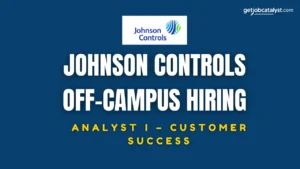Introduction
Picture this: Two candidates apply for the same role. Both have the required degree, technical training, and certifications. But one of them communicates with clarity, adapts to challenges smoothly, and shows genuine empathy when working with others. Who do you think the employer chooses? More often than not, it’s the candidate who demonstrates strong soft skills.
In today’s competitive job market, employers value more than just technical knowledge. They want professionals who can connect with people, solve problems under pressure, and thrive in fast-changing environments. That’s why learning, practicing, and improving your soft skills isn’t optional anymore—it’s a career necessity.
In this article, we’ll explore 8 essential soft skills career tips that employers value most. Along the way, you’ll learn why these skills matter, how to develop them, and real-world examples of professionals who used them to achieve workplace success.
1. Communication Skills: Your Career’s Superpower
If there’s one soft skill that can make or break your career, it’s communication. Whether you’re writing an email, giving a presentation, or simply explaining an idea to your team, the way you communicate reflects your professionalism, clarity, and confidence. Employers value communication because it ensures smoother teamwork, fewer misunderstandings, and stronger client relationships.
Career Tips to Improve Communication
- Practice active listening – Pay attention, ask questions, and confirm understanding.
- Keep it simple – Avoid jargon when explaining complex ideas.
- Build public speaking confidence – Join clubs like Toastmasters or practice in small groups.
- Use non-verbal cues wisely – Eye contact, tone, and body language matter as much as words.
Real-World Example
Think of a project manager leading a cross-functional team. If they can’t communicate deadlines and expectations clearly, the project will fail. But with strong communication skills—like regular updates, concise instructions, and active listening—the team not only meets deadlines but also enjoys working together.
2. Teamwork & Collaboration: Winning Together
No matter how talented you are, you’ll rarely work alone. Employers value candidates who can collaborate with colleagues, respect diverse viewpoints, and contribute to collective success. A collaborative mindset not only improves project outcomes but also builds trust within teams.
Career Tips to Improve Collaboration
- Be reliable – Deliver your part on time so others can trust you.
- Celebrate team wins – Give credit where it’s due.
- Learn conflict resolution – Approach disagreements with solutions, not blame.
- Respect diversity – Value different ideas and working styles.
Real-World Example
Imagine a marketing team preparing for a product launch. A designer, copywriter, and strategist must work together. If one person refuses to collaborate, the campaign struggles. But when each team member shares ideas openly and supports each other, the result is a successful, creative launch that impresses both the employer and the client.

3. Adaptability & Flexibility: Thriving in Change
The workplace is constantly evolving—new technologies, changing client needs, and unexpected challenges. Employers want professionals who can adapt quickly without losing focus. Being adaptable doesn’t mean giving up your own style; it means adjusting your approach to achieve the best outcome.
Career Tips to Improve Adaptability
- Embrace lifelong learning – Take courses, read, and stay updated in your field.
- Stay calm under pressure – Don’t panic when plans change; reframe it as an opportunity.
- Experiment with new approaches – Be willing to try different strategies.
- View feedback as growth – Use criticism as a learning tool, not a setback.
Real-World Example
During the COVID-19 pandemic, many employees had to shift from office to remote work almost overnight. Those who adapted—learning digital tools, managing remote communication, and staying flexible—thrived. Employers still remember and value that adaptability as a sign of resilience.
4. Problem-Solving: From Challenge to Opportunity
Every workplace has challenges. The difference between an average employee and a standout one is their ability to solve problems creatively and efficiently. Employers highly value professionals who can identify issues, analyze them logically, and propose solutions instead of simply complaining.
Career Tips to Improve Problem-Solving
- Ask the right questions – Define the real problem before jumping to solutions.
- Brainstorm multiple ideas – Don’t settle for the first solution.
- Think long-term – Avoid quick fixes that create bigger problems later.
- Work collaboratively – Two heads are often better than one.
Real-World Example
An IT support specialist faced repeated complaints about slow company software. Instead of simply restarting systems, they researched root causes and recommended a cost-effective upgrade. Their proactive problem-solving not only saved time but also boosted overall company productivity.
5. Emotional Intelligence (EQ): Mastering Workplace Relationships
Technical skills might get you hired, but emotional intelligence keeps you growing in your career. EQ is about understanding your own emotions and recognizing others’ feelings. Employers value this skill because it improves teamwork, reduces conflicts, and makes leadership more effective.
Career Tips to Improve EQ
- Practice self-awareness – Notice how your emotions affect your decisions.
- Show empathy – Try to understand others’ perspectives before reacting.
- Improve self-regulation – Stay calm in stressful situations instead of snapping.
- Build relationship skills – Strengthen trust with colleagues and clients.
Real-World Example
A manager leading a stressed team during a tight deadline could either pressure them more or acknowledge their hard work, provide encouragement, and adjust workloads fairly. The second approach shows high EQ and results in a motivated team that meets the deadline.
6. Time Management: Doing More in Less Time
Time is the one resource that every professional has in equal measure, yet how we use it determines success. Employers value time management because it shows reliability, productivity, and accountability. If you can prioritize effectively, meet deadlines without burnout, and balance multiple tasks, you’ll always stand out.
Career Tips to Improve Time Management
- Use prioritization tools – Apply the Eisenhower Matrix (urgent vs. important) to manage tasks.
- Break big projects into small steps – Avoid overwhelm by focusing on manageable tasks.
- Avoid multitasking traps – Focus deeply on one task at a time for better quality results.
- Set realistic deadlines – Under-promise and over-deliver rather than rushing poorly finished work.
- Leverage technology – Use productivity apps like Trello, Asana, or Google Calendar.
Real-World Example
Consider a junior analyst juggling multiple client reports. Without time management, deadlines are missed, causing stress and frustration. But by planning tasks in advance, setting reminders, and focusing on one report at a time, they finish ahead of schedule. Their manager notices—and soon assigns them bigger responsibilities, opening doors for career growth.
7. Leadership & Initiative: Standing Out Beyond Titles
Leadership isn’t just for managers—it’s about taking responsibility, inspiring others, and showing initiative. Employers value professionals who step up, propose new ideas, and guide others even without a formal leadership title. Initiative demonstrates that you’re invested in the company’s success, not just your own tasks.
Career Tips to Show Leadership & Initiative
- Volunteer for challenging projects – Take on responsibilities outside your comfort zone.
- Lead by example – Show punctuality, reliability, and consistency.
- Encourage peers – Support team members instead of competing with them.
- Be solution-oriented – Bring ideas, not just problems, to your manager.
Real-World Example
A mid-level employee noticed inefficiencies in the company’s onboarding process. Instead of waiting for management to fix it, they drafted a step-by-step guide for new hires and shared it with HR. The initiative improved the onboarding experience, saved time, and positioned the employee as a natural leader—leading to a well-deserved promotion.
8. Critical Thinking: Making Smarter Decisions
Critical thinking is the ability to analyze situations objectively, evaluate options, and make well-reasoned decisions. In workplaces flooded with data and constant changes, critical thinkers help companies avoid costly mistakes and choose smarter strategies. Employers highly value this skill because it shows maturity, foresight, and sound judgment.
Career Tips to Develop Critical Thinking
- Question assumptions – Don’t accept everything at face value; dig deeper.
- Gather evidence – Base decisions on facts, not just opinions.
- Compare perspectives – Seek input from colleagues with different backgrounds.
- Reflect before deciding – Take a moment to weigh pros and cons instead of rushing.
Real-World Example
During a product launch, a marketing team planned to spend heavily on social media ads. One team member questioned the assumption, analyzed past data, and suggested a more targeted approach focusing on niche platforms. The result? Higher engagement with lower costs. That’s the power of critical thinking in action.
FAQs
1. What are the top soft skills employers look for?
Employers often highlight communication, teamwork, adaptability, problem-solving, emotional intelligence, time management, leadership, and critical thinking as the most valuable soft skills.
2. How can I improve my soft skills at work?
Start with self-awareness, ask for feedback, practice active listening, take online courses, and observe how senior professionals handle workplace interactions.
3. Are soft skills more important than technical skills?
Both are essential. Technical skills get you the job, but soft skills help you grow, lead, and sustain long-term success in any career.
4. Can soft skills impact promotions and career growth?
Yes. Employers often promote employees who show leadership, problem-solving, and communication abilities—even if others have stronger technical expertise.
5. What’s the quickest way to develop soft skills?
Practice daily in real-life situations. Join workshops, role-play scenarios, and focus on one skill at a time—like listening better in meetings or managing time more efficiently.









1 thought on “8 Soft Skills Career Tips That Employers Value Most”